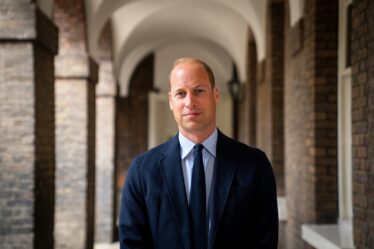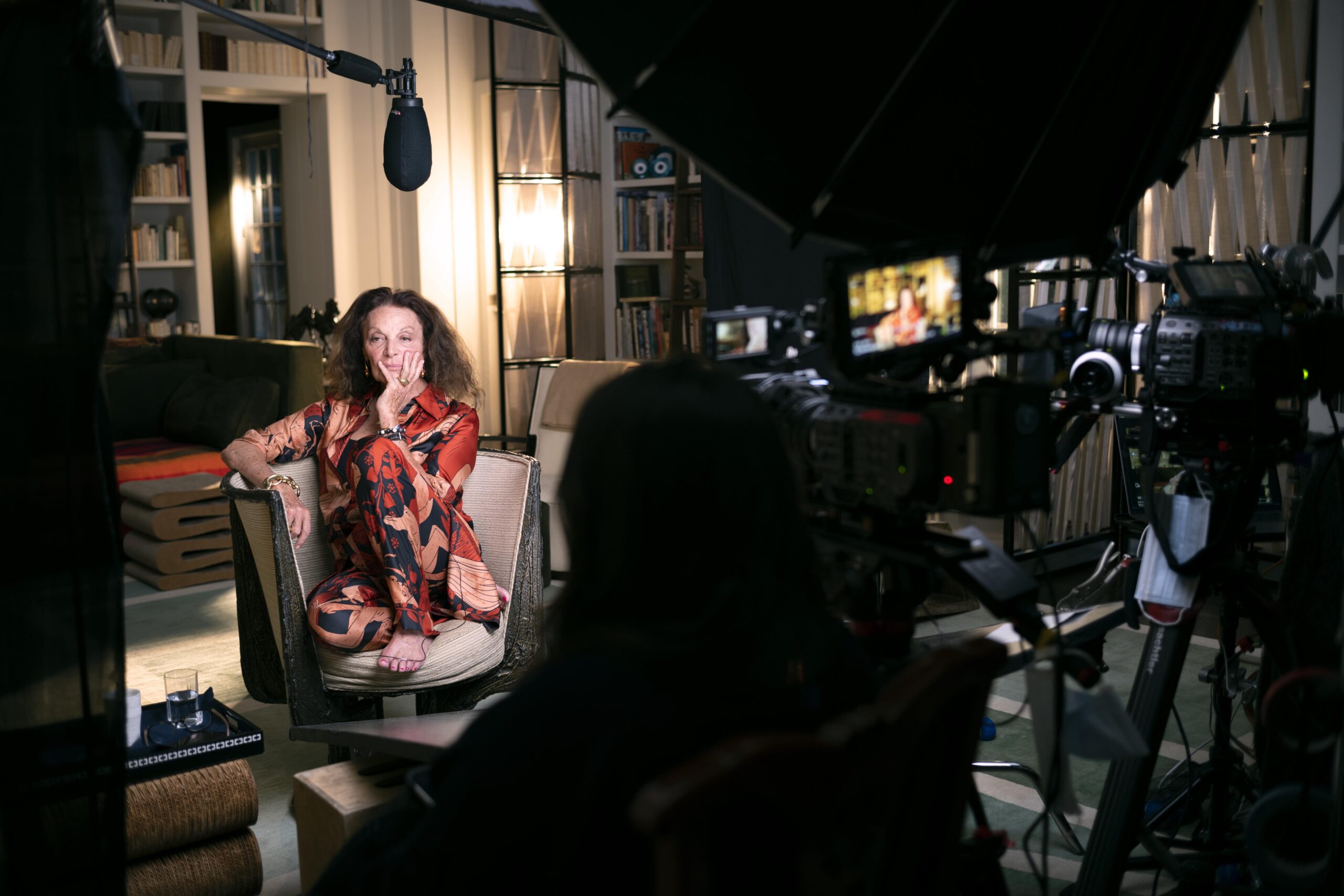
Directors Sharmeen Obaid-Chinoy and Trish Dalton discuss documentary filmmaking, building trust with a subject, and working with Diane von Furstenberg to tell her story in a way that inspires generations to come.

The wrap dress. American fashion. European royalty. Women empowerment. The name Diane von Furstenberg is synonymous with it all. But how did the woman behind the brand get to where she is today? How did she build an empire, simultaneously redefining modern luxury and breaking barriers for generations of women to come? And what does she want her legacy to truly be? These are some of the questions that directors Sharmeen Obaid-Chinoy and Trish Dalton sought to answer with Diane von Furstenberg: Woman in Charge, a documentary on the personal and private life of the designer.
And, luckily for them, their subject was ready to talk. “There was no question that we asked that was off limits,” two-time Academy Award-winning and four-time Emmy Award-winning filmmaker Obaid-Chinoy tells me as we connect to talk about the project. “What was incredible for us when we made this film was how honest Diane was. And it wasn’t just her. Every member of her family really opened up their lives to us.”
A compilation of old photographs and video clips with present day interviews, Diane von Furstenberg: Woman in Charge tells the inspiring story of how a young Diane, born to a Holocaust survivor a mere 18 months after liberation, became the renowned figure we now know her to be. From her early ambitions and free-spirited attitude towards love to her challenges balancing work and family life, and the ever present influence of her mother, the documentary paints a human picture of von Furstenberg – chronicling her drive for herself, for her family, and for women everywhere.
“If it was Diane talking, I feel like she would like for this movie and for all the projects that she’s involved in to be part of a call for women to be involved,” Dalton explains. “And for all people to feel empowered. I think that she’s always working to amplify that message.”
Read the full interview…
Individually, how did you each initially get into film?
Dalton: I think this is probably a place where Sharmeen and I somewhat align. I was always interested in storytelling — growing up I liked writing, I liked plays, I liked theatre, I liked taking my parents’ video camera. And then from the time I was in high school, I was a pretty big social activist and human rights activist so I was a little bit more conscious of my own interest in storytelling and I saw a collaboration of my interest in storytelling with my interest in activism through documentary. So I started working on them in high school and then continued.
Obaid-Chinoy: I’ve been a storyteller since I was 14 years old. I started writing for English language newspapers in my home country of Pakistan, always telling stories about marginalised communities, women on the front lines, people living on the fringes of society. And I think even at the age of 14, my barometer of anger determined the kind of things I wanted to write about. And I dovetailed, I think seamlessly into visual storytelling, into documentary filmmaking, when I was graduating from Smith College. I was 21 years old, and the world had been turned on its head because of 9/11. And I was writing a lot, and I wanted to do something visual. So I typed in ‘visual journalism’ in a search bar, and documentaries popped up, and I binge watched as many as possible.
Our storytelling is not just about amplifying people’s voices and sharing their experiences and their lives with people, but it’s also about using the stories we tell to change the way people see the world.
How did you both come to work on this project? And what initially inspired the idea of sharing Diane von Furstenberg’s story?
Obaid-Chinoy: Diane and I have known each other for over a decade now. She had given me an award at Glamour Magazine’s Woman of the Year [event] in 2013, and we sort of kept in touch over the years. And a few years ago, she reached out and asked me if I wanted to make a film about the women who she gives awards to and shed a light on their work. And I did a few Zooms and I spoke to her, and then I said, ‘you know, Diane, people just really want to listen to you, to your story.’ And she said, ‘I’m not ready to tell my story.’ And then that project went away. And then we got a call from Fabiola, our producer, that said, ‘she’s ready to tell the story and she wants you to tell the story.’ And I knew at that point that Trish would be a perfect partner to have. And that together we could tell this story.
Did you feel any pressure or added responsibility knowing she was a bit uncertain back when you had first approached her?
Dalton: I know I could say that she was very reticent about telling her story because she’s very mission driven. I think she was kind of like, ‘why are we telling my story when there’s all these stories?’ She’s very focused and committed to raising women leaders, supporting women leaders, supporting women’s rights, and the condition that she, you know, made for us to make the movie was that the film would be something that could help move forward that mission. And our feeling, and I hope for the people watching it, is that to see somebody like herself who has lived her life on her own terms, who has broken glass ceilings and raised up other women, is a super inspiring story. And we felt strongly and still feel strongly that that is the message of the film, that her life embodies that message.
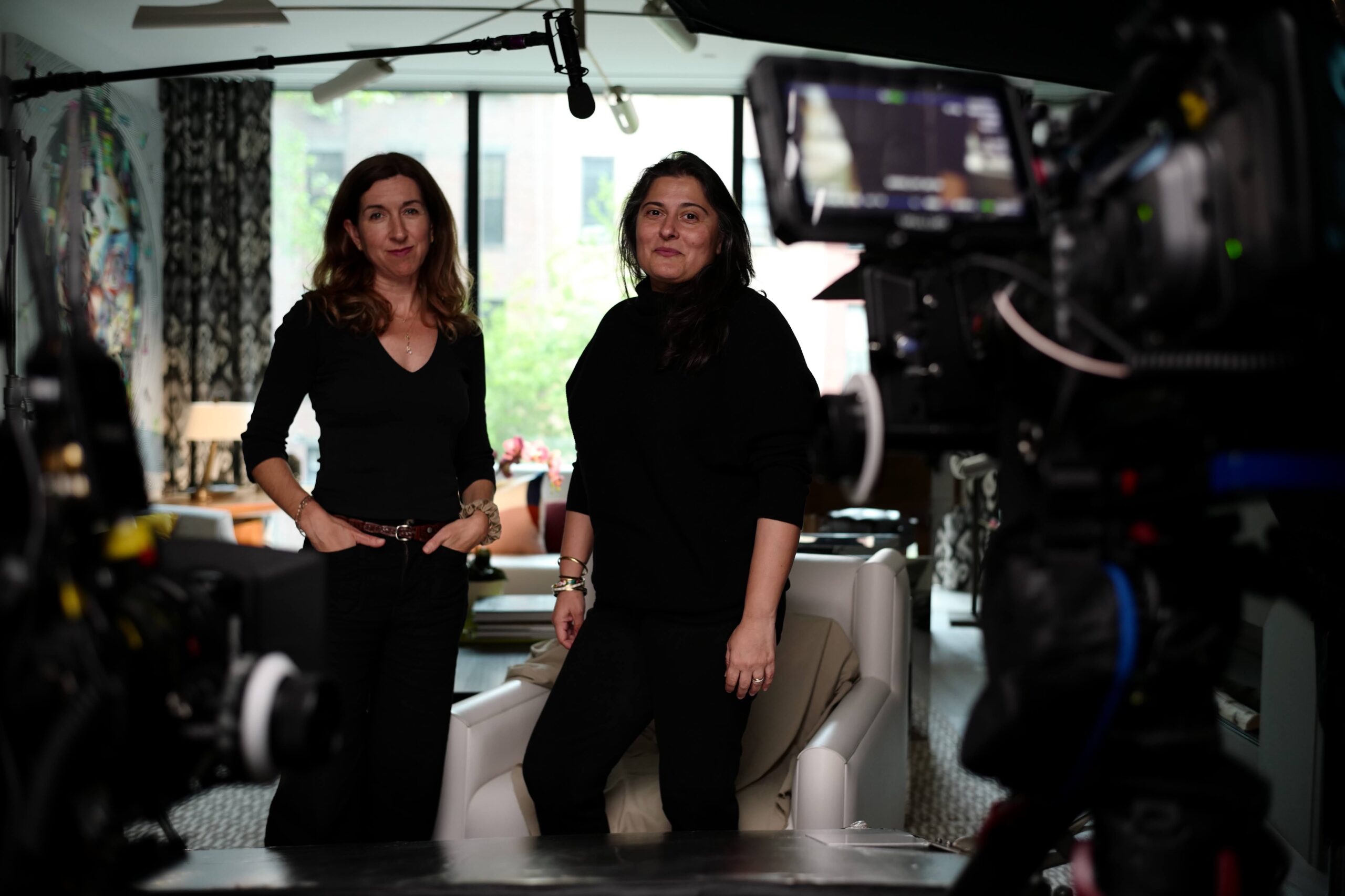

So you knew her already, but how much of her story did you know going in and what was the research process like?
Obaid-Chinoy: There’s the public Diane and the private Diane, right? It’s like an onion. We wanted to peel that onion and really get to the heart of who she is. And so we spent a lot of time with her. So much of a filmmaker’s life is time spent with subjects, not doing much, but just sitting around them, making them comfortable with who we are. And that really helps in having people open up parts of their lives. Documentary filmmakers go into the inner sanctum of people’s lives. I mean, sometimes subjects say things out loud they’ve never said to anyone, including themselves.
And Diane is such an incredible woman because I’ve never met anyone who has documented their life as well as she has. Every diary she’s written, every letter, every photograph, every video is labelled in the basement in an archive. It’s like a candy store for a filmmaker.
How do you build that trust with someone in a relatively short time span?
Obaid-Chinoy: I certainly learned very early in my career when I was working in war zones and working in difficult circumstances that you have very little time to form a bond for people to tell you their story. Oftentimes, filmmakers are like therapists, they step in, they ask questions, they hold people’s hands. They build a bond. And they share a lot about themselves. You know, I think that when someone is willing to share so much about themselves with you, it’s important to share something about yourself so that they feel like it is an equal relationship.
Dalton: Having a journalist background and wanting to tell stories, I think there’s a responsibility that comes with it. And I think that is something that both Sharmeen and I share and uphold where we want people who are sharing with us to feel that they are safe to share their stories. And I think both of us take that seriously and hope and that’s hopefully why people trust us, because we are trustworthy.
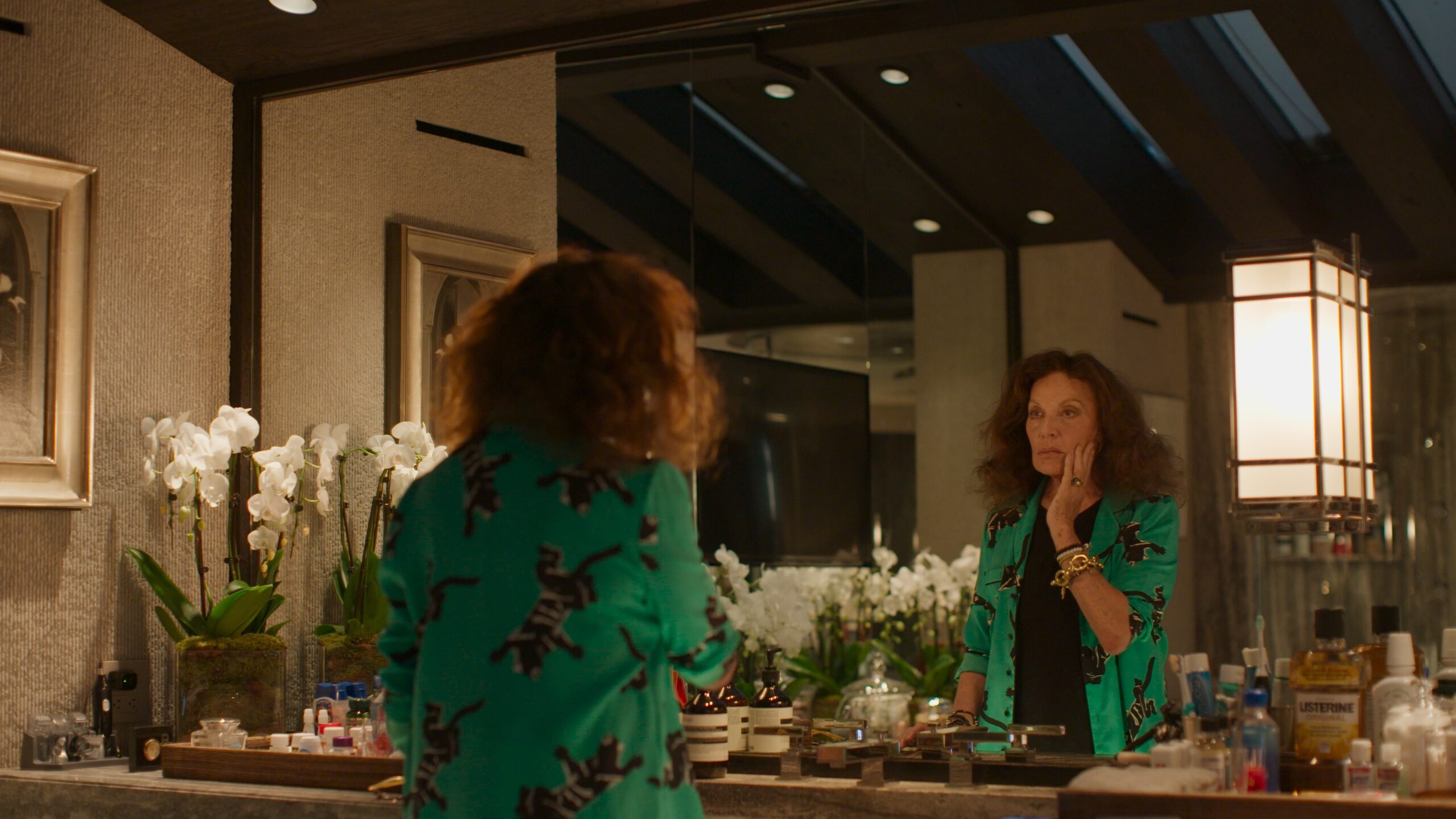

Were there any parts of Diane’s story that really resonated with you and that facilitated a certain common ground when working with her?
Obaid-Chinoy: For me, you know, I’m a mother of two children. Diane’s career was really taking off when she had two small children, and so she was juggling her work and her life, and to hear her talk about how hard it was really to be a young mother growing a business and to also have time for herself really resonated with me.
It was also interesting for me to uncover how much sexism there existed at a time when she was coming up. Trish and I uncovered all these interviews, and we would sit through them and we could not believe that she was being asked the kind of questions that she was being asked. So much has changed in the world, but yet so little has changed in the world in the last 50 years for women – and there was a lot of learning in uncovering that.
Dalton: She was breaking glass ceilings, she was a powerful businesswoman before there were very many powerful businesswomen. Now, in a way, I feel like there are so many of us, we have our own businesses and are working in fields that were mainly for men, but we are still up against some of the same things that there were 50 years ago.
For me, I relate to Diane in a lot of ways as a businesswoman, as somebody who’s mission driven, and also working in a field where women are still trying to find their footing in a lot of ways. I think that what’s interesting to us and one of the reasons we wanted to tell the story is like, ‘this is what it was like 50 years ago going through this and now this is what it is like 50 years later going through this,’ for the next generations coming up.
How did you balance the heavy topics with the celebration?
Obaid-Chinoy: The thing about Diane is that when she talks about her childhood and she talks about being locked in a cupboard by her mother, or when she talks about her business failing, or when she talks about the fact that her mother had a breakdown, the way she tells the story is very solution oriented. It’s like, ‘I was presented with a problem and I worked on finding a solution.’ I think she’s engineered that way. And it was important for us to show that positivity that she continuously has to everything. Every time something happened to her that you felt she would have fallen from she sees it in a completely different light. She learned a lesson from it or it taught her something about her life. And I think that that’s a wonderful way of telling a story. The darkness doesn’t feel so dark because she immediately lights a candle in that darkness for herself.
Diane von Furstenberg: Woman in Charge is out now.

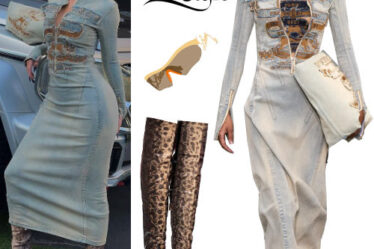
![Amal Clooney wears bridal dress in romantic outing with George Clooney in Italy [PHOTOS]](https://fashnfly.com/wp-content/uploads/2024/08/Amal-Clooney-wears-bridal-dress-in-romantic-outing-with-George-374x249.jpg)
